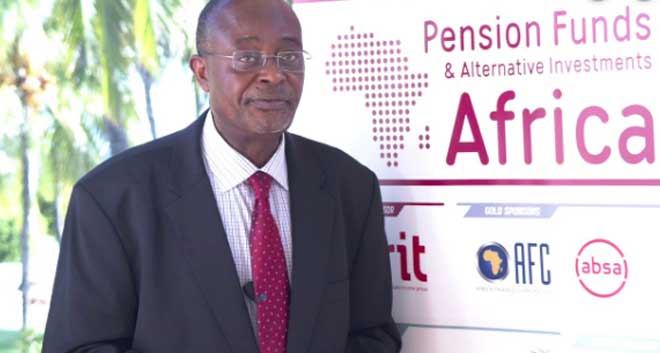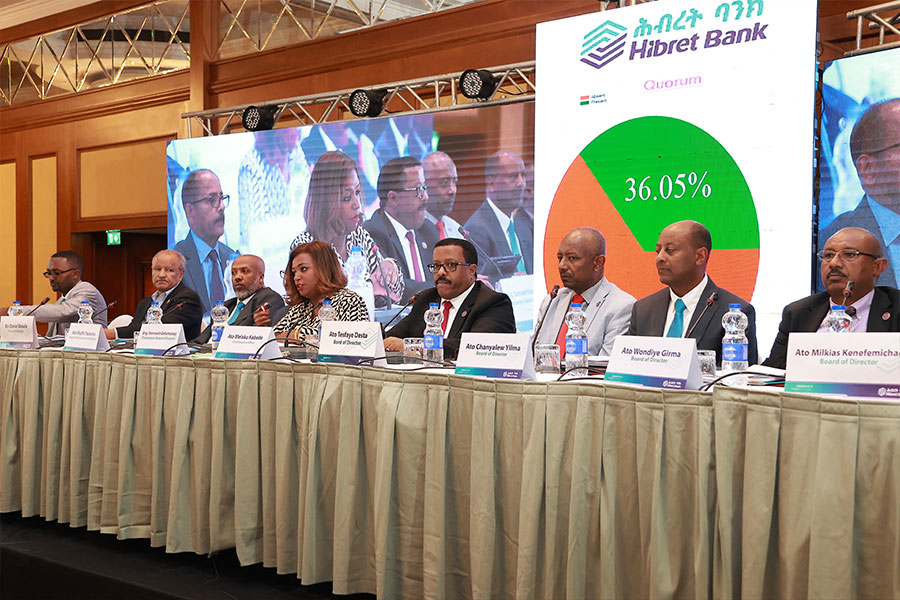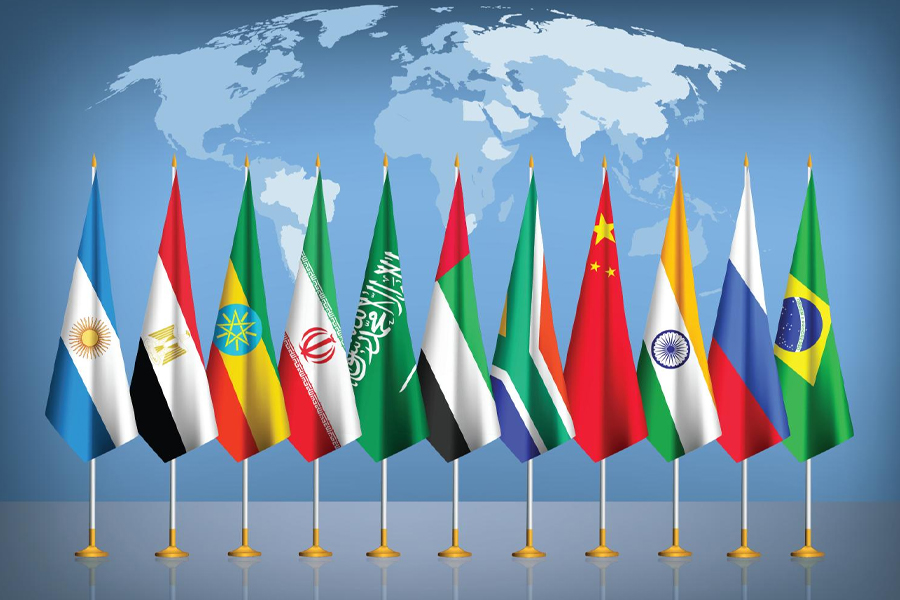
Jan 7 , 2024.
In the realm of international finance and diplomacy, few cities hold the distinction that Addis Abeba does in Africa. Often regarded as the continent's diplomatic heartbeat, here is where the African Development Bank (AfDB), a leading multilateral financial institution in Africa, first began its operations six decades ago.
In a modest setting within the United Nations Economic Commission for Africa (UNECA), AfDB's inaugural team of 10 laid the foundation for what would become a significant force in African economic development. Ethiopia, a founding shareholder of AfDB, played a historical role in those early days, a legacy crafted by figures like Finance Minister Menassie Lemma and Yewondwossen Mengesha, the central bank governor.
From the first meeting in Khartoum, Sudan, where the multinational agreement was ratified a year before, to the signing of an agreement by 23 African governments establishing the Bank in August 1963, Ethiopians have played their part. Over the years, several Ethiopians have served in this institution, including Tekalegn Gedamu, once minister of Transport & Communications, and Gabriel Negatu, director general for Eastern Africa, before his retirement in 2019.
Recent events have not been kind to this storied relationship. They cast a shadow over AfDB's crucial place in Ethiopia.
A disturbing incident involving the brief detention and assault of AfDB’s senior staff by "security officers" has raised serious concerns. The murky circumstances and the lack of transparency in the investigation of this episode have only deepened the intrigue. Akinwumi Adesina (PhD), AfDB's president and a known advocate for Ethiopia, responded with a rare rebuke, withdrawing all international staff from Addis Abeba. He hinted at potential repercussions for the Bank's future engagements with the country.
This should be alarming, considering the Bank currently supports 1.24 billion dollars in projects in Ethiopia.
Ironically, Adesina's belated statement has yet to elicit an official response from the Ethiopian authorities, who have maintained a radio silence.
The tight lip could be interpreted in several ways. It might be a symptom of habitual optimism, even in the face of adversity, or perhaps a calculated diplomatic strategy awaiting its moment. Regardless, Ethiopia's reputation has taken a hit in international circles. This is particularly consequential given the country's historical stature on the international stage. It was the first African country to join the League of Nations and is the seat of the African Union (AU). What had transpired recently not only tarnishes its image but also diminishes its international political clout.
Compounding Ethiopia's diplomatic slide is the reaction of Western embassies in Addis Abeba. In an unusual move, they have issued demarches, diplomatic actions demanding accountability and respect for the Vienna Convention, which provides immunity to diplomats and international organisations staff. The collective action should inform the gravity of the situation and the expectation of adherence to international norms.
However, the Ethiopian government's recent actions extend beyond the AfDB debacle.
Another diplomatic maelstrom involves Somaliland. Ethiopia's pledges to recognise its sovereignty in exchange for maritime access for naval and commercial purposes represent a significant geopolitical shift. While Mogadishu went ballistic, it has elicited strong reactions from Western capitals, and several multilateral organisations, with many reaffirming their commitment to the territorial integrity of Somalia as recognised in the early 1960s.
For the idealists in the diplomatic world, it is unreasonable and unacceptable to keep the aspiration of millions of people for self-determination - that Wilsonian conviction adulterated by Joseph Stalin. Somaliland, a former British protectorate in the Horn of Africa, unilaterally declared its independence from Somalia in 1991 following a brutal conflict where Mogadishu, under Sied Barre's order, carpet bombed the Port of Berpera.
It has since emerged as a relatively stable and democratic entity, albeit unrecognised internationally. The governance and civil liberties contrast between Somaliland and its neighbours is glaring. Freedom House rates it as “partly free,” a distinction it shares only with Uganda and Kenya in the region.
Undoubtedly, history favours Somaliland's quest to join the family of states. Somalilanders demonstrated their determination to reclaim their sovereign status won in June 1960, five days before they joined their folks in the South to form the Somali Republic.
The geopolitical realists – a la carte Henry Kissinger – view the territorial sovereignty of states as sacred. After all, Somaliland is one of the 13 breakaway territories aspirating to be embraced in the family of states. The messages were unambiguously clear from Washington D.C. to London and from Brussels to AU's host (Addis Abeba). The reluctance that held countries near and afar from granting it the recognition its people crave is embedded in the desire not to unravel the global status quo.
Ethiopia’s engagement with Somaliland, particularly the memorandum of understanding signed between Prime Minister Abiy Ahmed (PhD) and Somaliland’s President Musa Bihi Abdi, remains in obscurity. The agreement, which reportedly includes a lease of a coastal corridor to Ethiopia and potential Somaliland shares in Ethiopia’s prized assets like the Ethiopian Airlines Group, has significant implications. However, subsequent statements from Addis Abeba signalled a more cautious approach to recognition, indicating a possible recalibration of strategy. The statement issued by the Government Communications Service could water down the enthusiasm President Bihi invoked upon his return to Hargessa.
Says the statement: “It [the MoU] also includes provisions for the Ethiopian government to make an in-depth assessment towards taking a position regarding the efforts of Somaliland to gain recognition.”
If the intention was not to go the entire length on the road in fulfilling an aspiration of a generation of Somalilanders, the damage has already been done. The “simmering tension” Africa Union’s Chairman, Moussa F. Mahamat, observed building up between Ethiopia and Somalia appears to be galvanising support for the latter. Not only are Somalians mobilising in waves against what they feel is an encroachment of their sovereignty by their erstwhile adversary in the region, but even Turkey, the staunch supporter of Addis Abeba and ardent friend of Mogadishu, chose to side with the latter.
Ethiopia's leaders appear to be responding to alarming reactions. Their country faces formidable troubles, including debt restructuring negotiations, tensions over the GERD project, drought and internal conflicts. Ethiopia’s diplomatic manoeuvres should be astutely managed to avoid further isolation and maintain its standing in the global arena.
Prime Minister Abiy’s administration, known for its optimism, now faces a critical test in navigating these high-wind diplomatic waters. The handling of both the AfDB incident and the Somaliland recognition will have lasting implications for Ethiopia's international relations. The country’s history, particularly during the era of Emperor Haileselassie, offers lessons in diplomatic tact and maintaining stature in the global community.
Ethiopia's current leaders would do well to reflect on these lessons as they chart their course through these turbulent diplomatic waters.
PUBLISHED ON
Jan 07,2024 [ VOL
24 , NO
1236]

Exclusive Interviews | Nov 23,2019

Radar | Jul 29,2023

Radar | Sep 19,2020

Radar | Nov 27,2023

Radar | Nov 30,2019

Fortune News | Mar 19,2020

Viewpoints | Oct 20,2024

Viewpoints | Oct 26,2024

Radar | Jun 27,2020

Delicate Number | Jun 21,2025

My Opinion | 131451 Views | Aug 14,2021

My Opinion | 127803 Views | Aug 21,2021

My Opinion | 125784 Views | Sep 10,2021

My Opinion | 123419 Views | Aug 07,2021

Dec 22 , 2024 . By TIZITA SHEWAFERAW
Charged with transforming colossal state-owned enterprises into modern and competitiv...

Aug 18 , 2024 . By AKSAH ITALO
Although predictable Yonas Zerihun's job in the ride-hailing service is not immune to...

Jul 28 , 2024 . By TIZITA SHEWAFERAW
Unhabitual, perhaps too many, Samuel Gebreyohannes, 38, used to occasionally enjoy a couple of beers at breakfast. However, he recently swit...

Jul 13 , 2024 . By AKSAH ITALO
Investors who rely on tractors, trucks, and field vehicles for commuting, transporting commodities, and f...

Jun 29 , 2025
Addis Abeba's first rains have coincided with a sweeping rise in private school tuition, prompting the city's education...

Jun 29 , 2025 . By BEZAWIT HULUAGER
Central Bank Governor Mamo Mihretu claimed a bold reconfiguration of monetary policy...

Jun 29 , 2025 . By BEZAWIT HULUAGER
The federal government is betting on a sweeping overhaul of the driver licensing regi...

Jun 29 , 2025 . By NAHOM AYELE
Gadaa Bank has listed 1.2 million shares on the Ethiopian Securities Exchange (ESX),...